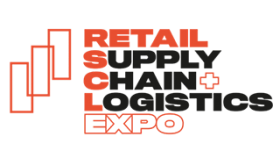Landia (established in 1933) makes tough pumps and mixers that solve problems and provide unrivalled total cost of ownership in challenging wastewater applications.
Operation zero carbon
On 18 March, the Communities and Local Government’s (CLG) consultation on the definition of zero carbon homes – launched in December 2008 – drew to a close.
The consultation document follows on from a report published by a task group convened by the UK Green Building Council (UK-GBC) in order to review the definition of ‘zero carbon’ as stated in the Code for Sustainable Homes. The UK-GBC report found that the current requirements for ‘zero carbon’ might result in up to 80 per cent of new homes being unable to meet the definition.
Green design and construction
The CLG consultation has been concerned with what is best described as ‘operational zero carbon’ – the design and construction of homes that in the course of their operation do not add to the carbon dioxide in the atmosphere. This includes emissions from space heating, ventilation, hot water and fixed lighting, but also unregulated energy usage (powering of appliances for example), which may be currently as much as
35 per cent of the total energy use of the home.
The consultation proposed a hierarchical framework, which firstly addresses the issue of ‘energy efficiency’. All new homes will have to be built to very high levels of energy efficiency (achieved by having an appropriate building form, good fabric insulation and good airtightness standards) and the consultation document suggested requirements similar to PassivHaus and Energy Saving Trust Advanced Practice standards.
The consultation invited views on the minimum level of ‘carbon compliance’ (the second part of the hierarchy) that should be achieved on-site. The consultation discusses standards ranging from a 44 per cent reduction in CO2 (compared to Part L 2006) to a 100 per cent reduction. Beyond the reductions achieved through energy efficiency improvements, there should be provision of on-site renewable microgeneration technologies and/or direct connection to a district heating system that produces little or no carbon dioxide.
The new concepts in the definition were ‘allowable solutions’ to achieve zero carbon and ‘cost caps’ to provide increased certainty. Allowable solutions provide a menu of options (mainly off-site) to mitigate the residual emissions from unregulated energy usage. This provides much greater flexibility than the current Code for Sustainable Homes Level 6 definition, which requires all technologies to be directly connected to the site.
To help support the consultation process, the Zero Carbon Hub ran a series of eight ‘Defining zero carbon homes – have your say’ interactive events across England in February during which over 500 delegates fed back their views and opinions.
Major implications
This feedback has been compiled in a report, which has been submitted to government and is also available for download via our website. From the key stakeholder groups represented, including housebuilders, developers, agencies, RSLs, housing associations, manufacturers, energy companies, consultants and academics, the Zero Carbon Hub was able to generate a uniquely formed consultation response.
The key findings have major implications for the phased step up to mainstream delivery of zero carbon homes from 2016:
- Underestimation of the zero carbon challenge: Fewer than 20 per cent of the delegates at the events understood the magnitude of the challenge to deliver zero carbon homes. With 41 per cent significantly underestimating the carbon reduction required, there is much to be done to communicate the scale of the challenge.
- Cost of zero carbon homes: Nearly three-quarters of developers, with experience of low carbon homes, felt that the cost figures in the consultation document were lower than what would be incurred in 2016. However, 25 per cent of delegates thought that the cost estimates were about right and it is essential to now understand the differences in range of future costs.
- Complexity of ‘allowable solutions’: Suggestions for ‘allowable solutions’ – to make low carbon buildings more efficient – were thought by some to be too complex and difficult to deliver in practice.
The report also indicates consensus on the following issues:
- Biggest challenge is in meeting design standards on site: Achieving low air leakage rates and eliminating thermal bridges regarded as bigger challenges than high efficiency windows, highly insulated floors, walls and roofs.
- Need for harmonisation of requirements: New definition and framework should be carried over to non-domestic buildings and to the energy section of the Code for Sustainable Homes
- Change of legislation supported: Over 90 per cent of delegates agreed or strongly agreed that legislation is required to ensure higher energy efficiency in homes.
- Requirements should be communicated by next year: Delegates wanted to see advice on the energy efficiency targets for 2016 specified with the 2010 update of Part L of the Building Regulations.
- Regulation: Building Control should be responsible for overseeing the energy efficiency and carbon compliance levels. For the enforcement of allowable solutions, a new accredited body was the preferred option.
Going forward
These unique events have provided informed, evidenced-based feedback to government on its proposals and have helped us identify the following four key areas of focus for the Zero Carbon Hub, which we will work on with CLG, housebuilders and key stakeholders.
Information: The Zero Carbon Hub is working to provide industry with clear guidance on delivering low and zero carbon homes.
Costs: Estimates from industry will be compared with those in the consultation to verify the assumptions being made and to explore ways of making zero carbon affordable.
‘Allowable Solutions’: Exploring the practicalities of each of the allowable solutions and their potential across a range of sites.
Regulation: How the sign off process for carbon compliance and allowable solutions works.
CLG is expected to publish its final report on the definition this summer. The government would like to see a progression with three step changes to Building Regulations over a period of seven years. This is an unprecedented speed of change with housebuilders and their clients having to rapidly explore new solutions without creating risks for new homeowners.
Coming out of the new definition, industry will need to innovate with care, build-in rapid feedback mechanisms, constantly reassure buyers and train those designing and constructing new homes to the highest levels.
The Zero Carbon Hub is a private/public partnership, launched in 2008 to help deliver the government’s target that all new homes to be zero carbon from 2016.
For more information
A copy of the ‘Defining zero carbon homes – have your say’ report can be downloaded at www.zerocarbonhub.org.
Company Focus
Event Diary
Retail Supply Chain & Logistics Expo returns to Excel London across 12-13 November, once again bringing together the world of logistics, supply chain, eCommerce and retail innovation for two dynamic days of opportunity.
Every sport, from grassroots football to world-class tournaments, depends on one constant: high-quality playing surfaces and well-maintained green spaces.
Tickets: Free registration available at www.retailscl.com
The Retail Supply Chain & Logistics Expo is the UK’s leading event for retail supply chain and logistics professionals, showcasing the latest innovations in fulfilment, 3PL, AI-driven automation, and warehouse technology.
Supplier Profiles
Bauder Accepts Keys to its New UK Distribution Centre at Gateway 14
Bauder marked a major milestone in its UK expansion with the official handover of a brand
Words of World: Bridging language barriers with excellence
At Words of World, we specialise in professional translation and interpreting, d
Latest Features
The British Institute of Cleaning Science (BICSc) and the Cleaning & Support Services Association (CSSA) have successfully completed a groundbreaking project aimed at exploring the future of cleaning. This collaboration marks a significant milestone in the cleaning industry, reflecting a shared commitment to embracing innovation with confidence.
The Crown Commercial Service’s (CCS) new framework on Language Services (RM6302), dealing with translation, transcription and interpreting, is live, running from 7th May 2025 to 6th May 2028.










